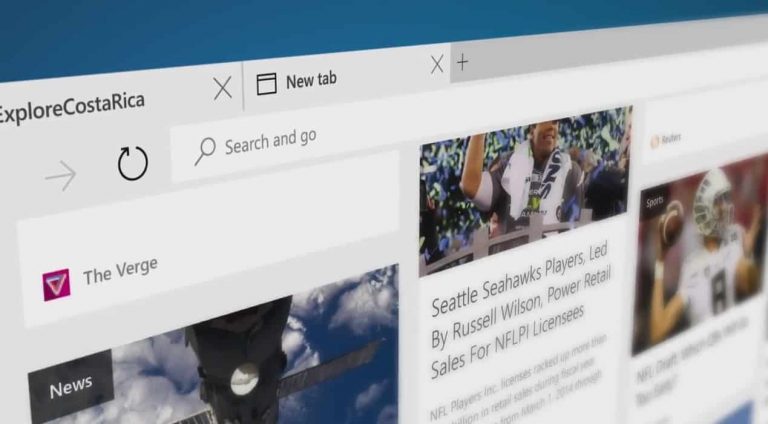Last week, we reported that Microsoft’s browsers did not fare too well in the latest data from NetMarketShare for September 2016. Indeed, Microsoft Edge retained its 5.16% browser share last month (even though Windows 10 has now reached a 400 million user base) while Internet fell from 27.38% to 25.48%. Now, new data from Net Applications paint a slightly more dramatic picture for Microsoft’s web browsers (via Computerworld).
According to the new data, the combined browser share of Internet Explorer and Microsoft Edge fell to 30.6% in September (down 1.9 percentage points), which is the sixth time in a row that the combined share is losing 1.9 percentage points or more. Overall, the two browsers have already lost 18 percentage points since the beginning of the year, a dramatic decline which draws some comparisons to the downfall of Netscape during the nineties.
Computerworld also calculated that if both browsers continue to bleed browser share at this rate going forward, their combined market share could fell below 25% by the end of the year. Additionally, the publication estimated the number of users of Microsoft’s browsers by using Net Application’s data and Microsoft’s public claim that Windows currently runs on 1.5 billion PCs worldwide: according to these estimations, 506 million users were using Internet Explorer or Edge in September 2016, which is 292 million less than the 798 million estimated users in January 2016.

As of today, Microsoft keeps supporting the legacy Internet Explorer 11 while advertising Edge as the most versatile, energy-efficient browser on Windows 10 PCs. However, PC users are clearly increasingly adopting competing web browsers such as Google Chrome and Firefox ,which also offer handy sync features on mobile devices.
Do you expect Microsoft’s browsers to keep losing browser share in the next few months, and do you think Microsoft should be concerned about it? Let us know what you think in the comments below.


